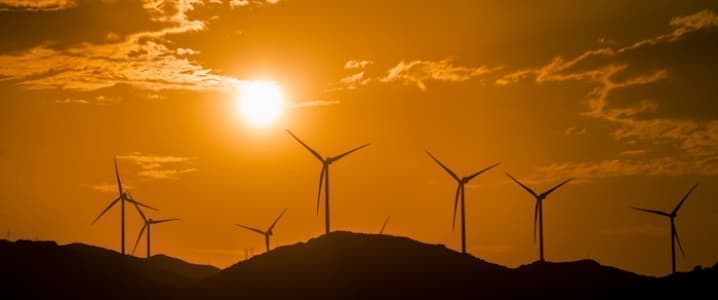Last week, the Secretary General of the United Nations’ Climate Change Conference COP25 told the gathered world leaders in his audience that “By the end of the coming decade we will be on one of two paths. One is the path of surrender, where we have sleep walked past the point of no return, jeopardizing the health and safety of everyone on this planet. Do we really want to be remembered as the generation that buried its head in the sand, that fiddled while the planet burned? The other option is the path of hope.”
So far, however, the “path of hope” and “sustainable solutions” has not been met with nearly enough support, funding, or serious resolve. In order to meet curb global carbon emissions before we reach what the Intergovernmental Panel on Climate Change has identified as a tipping point toward irreversible catastrophic climate change, we need to decarbonize the global economy with a sense of urgency and haste that has so far been found extremely lacking in global seats of power.
Now, the International Renewable Energy Agency (Irena) has calculated exactly how much renewable energy will need to be installed by 2030 if we are to get on track to take the UN’s path of hope. Irena “believes 7.7TW of operational renewable capacity will be needed by 2030 if the world is to limit global warming to ‘well below’ 2C above pre-industrial levels, in line with the Paris Climate Agreement,” reports Wind Power Monthly. “However, at present, countries’ nationally determined contributions (NDCs) amount to 3.2TW of renewable installations by 2030, up from 2.3TW currently deployed.”
Related: Iran: We Won’t Agree To Any Production Cuts In The Future
As of now, however, the effort toward building up renewable energy capacity and infrastructure has been hugely insufficient, and last year it even took a downward turn. Earlier this year the International Energy Agency sounded alarm bells when renewables growth slumped, failing to grow year on year for the first time since 2001. Statistics released by the agency revealed that new renewable energy capacity increased by 180 GW in 2018, the same figure as from the year before in 2017. If 180 GW was a huge or even reasonable amount this would be excusable, but the IEA wrote that this number is “only around 60 percent of the net additions needed each year to meet long-term climate goals”.
Irena says achieving a rate of renewables growth that would actually allow the world to meet climate change targets is doable, and can be done "in a cost-effective way with considerable socio-economic benefits across the world" and Francesco La Camera, Irena’s director-general asserts that decarbonizing the global economy is both “technologically possible and socially and economically beneficial". He went on to add that "renewables are good for growth, good for job creation and deliver significant welfare benefits.” Related: Israel's Plan To Bypass The World's Most Critical Oil Chokepoint
In fact, solar and wind power have gotten significantly less expensive in the past years and are now even cheaper than coal in most of the world. In fact, subsidies for wind and solar have been so successful across the world that the industries have outgrown those subsidies. The training wheels are off and renewables are now more than profitable as standalone sectors. “On sun-drenched fields across Spain and Italy, developers are building solar farms without subsidies or tax-breaks, betting they can profit without them. In China, the government plans to stop financially supporting new wind farms. And in the U.S., developers are signing shorter sales contracts, opting to depend on competitive markets for revenue once the agreements expire,” reported Bloomberg earlier this year.
While decarbonization is both possible and necessary, the world still has not galvanized to make the switch at the rate needed to combat catastrophic climate change. As Wind Power Monthly reports, “a report released to coincide with the opening of the [COP25] conference showed that global emissions are likely to continue to climb in 2019 - albeit at a slower rate than in the previous two years.”
By Haley Zaremba for Oilprice.com
ADVERTISEMENT
More Top Reads From Oilprice.com:
- Is This The Only Way To Make Nuclear Energy Work?
- Aramco Looks To Build An LNG Fleet
- The Danger Of Deeper OPEC+ Cuts



















Perhaps it's harder to track, but we should also act on methane leakage from wellhead to the end user, the size and health of forests, pricing carbon, reducing carbon release from cattle and cattle manure, and how well healthy soils sequester carbon and reduce need for synthetic fertilizer.
It's a big picture we're dealing with; we need to get beyond saying warming is because our sun is getting hotter.